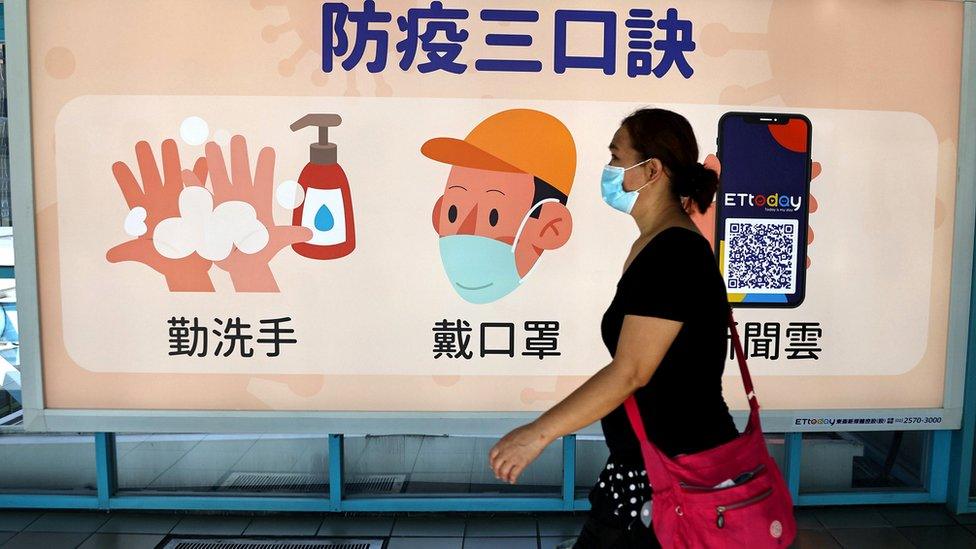Covid-19: Virus ‘success’ Taiwan to keep restrictions despite vaccine
- Published

Taiwan's early response has kept the virus well in check
Authorities in Taiwan have warned that even as vaccinations begin, the world should remain extremely vigilant against the virus.
Health Minister Chen Shih-chung said scientific data on the vaccines' lasting effect was still insufficient.
"During the first vaccination periods, people should continue with the safety measures," he told the BBC.
Taiwan has been one of the most successful places in the world in dealing with Covid-19.
So far, it has had only 724 confirmed cases and seven deaths and has never had to go into lockdown.
The health minister does not question the vaccines' safety or whether they provide immunity but rather stresses that it was not clear to which extent and how long they would protect people.
Taiwan's impressive success battling the coronavirus has been largely attributed to early and strict border controls, a ban on foreign visitors and mandatory quarantine for all Taiwanese returning home.
The island's 23 million people have also proactively been wearing face masks, even before they were required to do so.
And the protective measures have not only helped to keep the virus in check but also have driven down cases of the regular flu and has reduced cases of stomach flu by 90%.
How will the new Pfizer vaccine work?
Since the early days of the pandemic, there has been a global race to develop a vaccine. Companies in Europe, the US and China all having several vaccines in late stage trials, with most of them showing around 90% efficiency.
Russia was the first country to begin vaccinating its population with its domestically developed Sputnik V vaccine.
Earlier this week, the UK also rolled out its first jabs after it gave approval to a vaccine by Pfizer/BioNTech.
It's expected that many of the other vaccine candidates will also be approved soon and that countries will begin widespread vaccination in 2021.
Limited production capacities though will mean the process will be gradual and take most of next year.
"I think when vaccinations become more widespread, the virus will ease," Mr Chen told the BBC's Cindy Sui in Tapei . "But at the same time, we are worried that while vaccinations are being carried out, everyone will be relaxed.
"So during the pre-vaccination period, the whole world should pay attention to whether this relaxed attitude will lead to another peak in the pandemic."
He also urged that the lessons from this pandemic should not be forgot once the crisis is over, warning that there will be more infectious diseases in the future and that the frequency will be higher.
"I believe the world will definitely return to normal," he said. "The only thing is often when infectious diseases are spreading, everyone learns a lesson, but after they pass, people forget the lessons learned."
- Published14 January 2021

- Published2 December 2020

- Published29 November 2020

- Published6 October 2021
